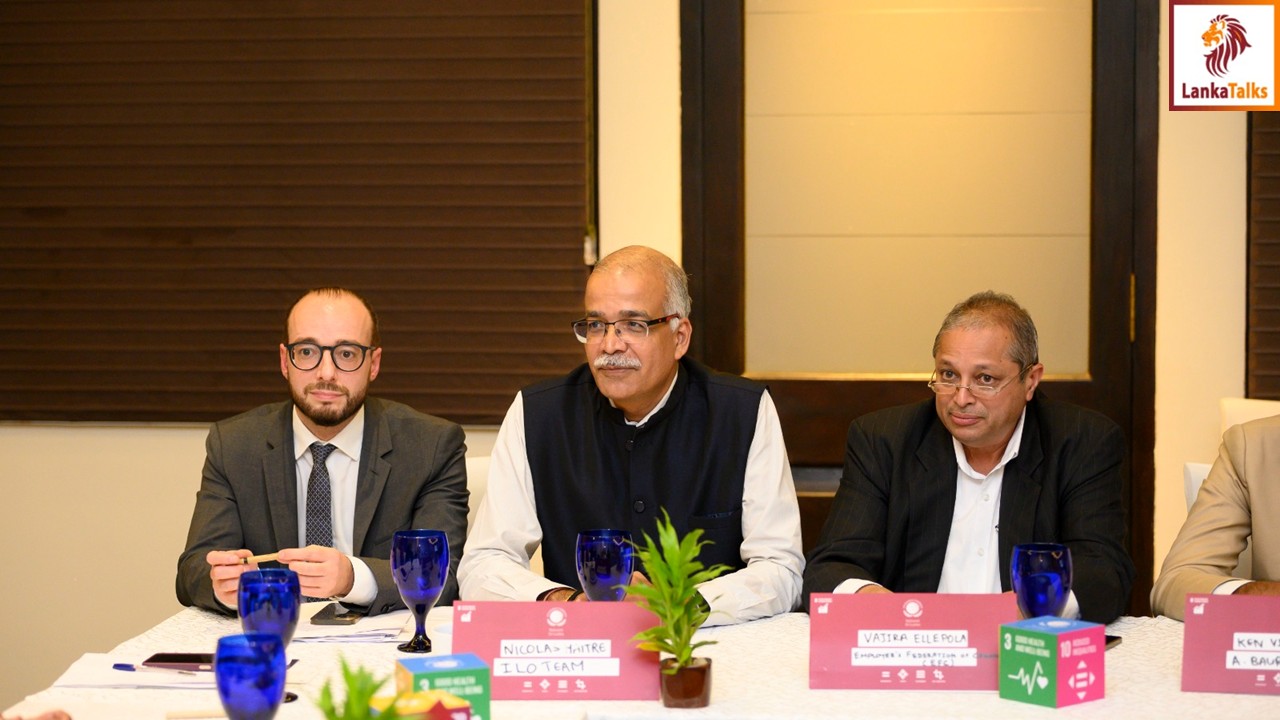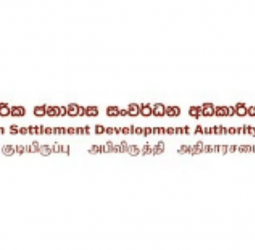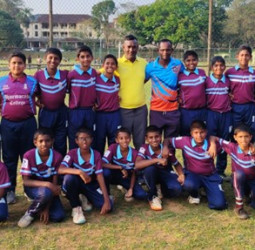Event held in collaboration with the International Labour Organization Sri Lanka, hosted as A. Baur & Co.’s Nationally Significant Event as Patron of the Business & Human Rights Working Group of UN Global Compact Network Sri Lanka
Organized by the UN Global Compact Network Sri Lanka (Network Sri Lanka) in collaboration with the International Labour Organization (ILO Sri Lanka), the event was hosted as A. Baur & Co.’s Nationally Significant Event in its role as Patron of the Business & Human Rights Working Group of Network Sri Lanka.
Taking place against the backdrop of the ILO’s High-Level Regional Dialogue on Shaping the Living Wage Agenda in Asia and the Pacific in Colombo, the roundtable brought together C-Suite executives and senior business leaders from across Sri Lanka for a closed-door dialogue on the future of Living Wage in the corporate landscape. The session created a space to exchange ideas, reflections, and perspectives on one of the most pressing challenges for sustainable business and social equity.
A Global-Local Dialogue
The keynote address was delivered by Mr. Luis Rodrigo Morales-Velez, Director of Policy – Industrial Relations & ILO Coordination, International Organisation of Employers (IOE), who spotlighted the global significance of operationalizing living wage frameworks while highlighting the critical role of the private sector in advancing fair and equitable work conditions, while stressing that this effort must go hand in hand with government responsibility to provide an enabling environment through sound labour market policies, effective regulation, and support for enterprise development. His remarks set the tone for the discussions that followed, bridging global labour standards with the Sri Lankan corporate context.
The roundtable was also joined by ILO specialists Mr. Anoop Satpathy, Wage Specialist, Mr. Nicolas Maitre, Economist and Mr. Ravi Peiris, Senior Employer Specialist who presented key elements of the ILO conclusions on Wage Policies including living wages and contributed to the discussion relating to its advancement of living wages in the context of Sri Lanka. It was mentioned that there is no ‘one size fits all’ approach in aspiring towards this objective. Sri Lanka can take note of their current practices in collective bargaining and wage and benefit fixation and move towards promoting ‘living incomes’ which will also include wages along with other benefits that support workers’ living standards.
The roundtable was further framed within the context of the ILO’s regional deliberations on decent work and labour standards, spotlighting the global importance of fair and equitable wage practices. At the same time, it was designed to capture the Sri Lankan perspective, reflecting on the country’s evolving economic conditions, workforce realities, and the growing recognition that the private sector has a pivotal role to play in creating a more just and inclusive economy. For Network Sri Lanka, convening this dialogue marked a milestone in advancing the Ten Principles of the UN Global Compact, particularly those related to human rights, labour, and equality. It also aligned with the UN Global Compact’s Forward Faster initiative, which calls on businesses worldwide to accelerate progress toward the Sustainable Development Goals (SDGs) by 2030, including ensuring that all employees earn a living wage.
The Significance of Living Wage
A living wage goes beyond statutory minimum requirements, ensuring that workers and their families can afford a decent standard of living. This includes access to housing, food, healthcare, education, and the ability to participate meaningfully in society. With rising costs of living and increasing demands on workers across industries, the Living Wage conversation has become a central pillar of global sustainability and human rights frameworks.
By situating the roundtable at the intersection of business imperatives and social responsibility, the meeting highlighted the strategic and ethical importance of embedding living wage principles in corporate strategies. For Sri Lankan companies, this approach not only supports workforce wellbeing and retention but also contributes to supply chain resilience, competitiveness, and long-term sustainable growth.
Hosting as a Nationally Significant Event
The event was hosted as A. Baur & Co.’s Nationally Significant Event, reflecting the company’s leadership and commitment to responsible business practices. As Patron of the Business & Human Rights Working Group of Network Sri Lanka, A. Baur & Co. continues to play a catalytic role in advancing conversations that bridge corporate responsibility with national development priorities.
A Platform for Responsible Leadership
By design, the roundtable encouraged peer-level exchange and reflection, with the understanding that business leaders play a decisive role in shaping workplace policies, influencing supply chains, and setting the tone for responsible business conduct. The participation of the ILO and Network Sri Lanka provided additional context and expertise, ensuring that the dialogue was grounded in both global frameworks and local realities.
Advancing Forward Faster
The roundtable is part of Network Sri Lanka’s broader efforts to support companies in contributing meaningfully to the 2030 Agenda for Sustainable Development. Through its Working Groups, leadership dialogues, and collaborative initiatives, Network Sri Lanka is enabling the private sector to take measurable steps on issues ranging from human rights and labour to climate action, supply chains, and gender equality.



 A.R.B.J Rajapaksha
A.R.B.J Rajapaksha



